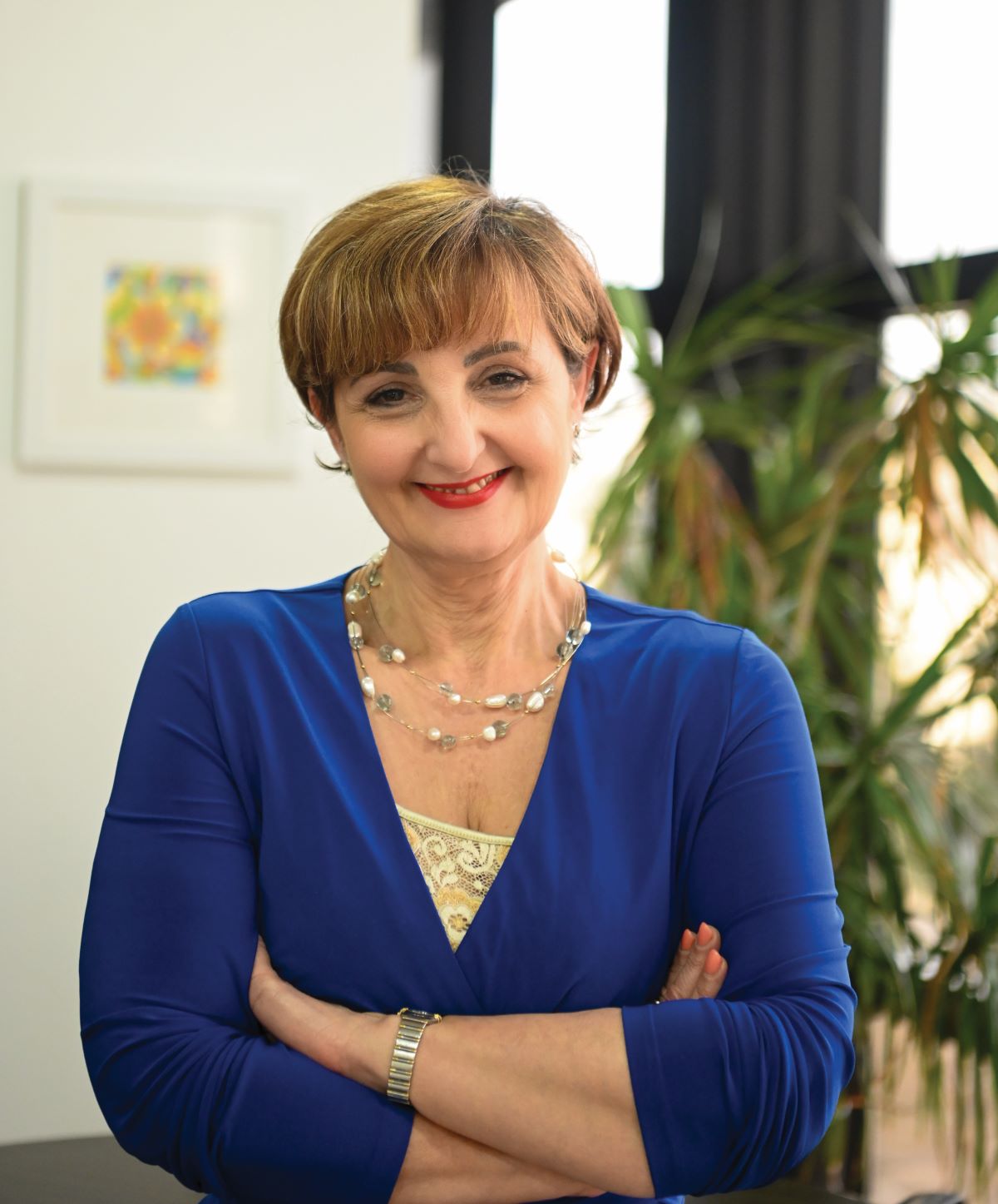As the shift to a digital economy gathers pace, more and more businesses are using online means as their primary mode of internal and external communication. By any measure, Malta’s eGovernment initiatives are a major success, with the country ranking in first place for the last two years in a row in the European Commission’s eGovernment Benchmark.
Although there is no question that businesses can access services online, their provision is conducted in a manner that mirrors the analogue process, with each Government department setting up independent systems.
“Attempts at integrating business-related procedures were very limited,” says Marika Tonna, CEO of Business 1st, a one-stop shop for businesses operated by Malta Enterprise. “And although access to Government-related services had improved dramatically, we were still missing a high-level business portal which brings all of them onto one platform.”

The new portal, she says, will change the way that businesses interact with Government, creating a “paradigm shift from the traditional approach where multiple services are accessed separately to one where multiple submissions are made from a single point.” Therefore, it will allow users to open and close a business, pay taxes, manage licences, and apply for incentives and other services from 38 different Government entities in a seamless manner.
Ms Tonna promises an experience that is “entirely different to the usual repeated filling of form after form that we are used to.” Instead, the portal will present an interactive and more efficient alternative. For example, when seeking to set up a business, the user will be asked whether they are Maltese, European, or a Third-Country National, and then whether the entity being established is a company, a partnership, or a self-employed person, as well as the line of work the new entity will be involved in. “If you want to open a restaurant, it will automatically inform you that a licence is required from the Malta Tourism Authority,” she says, “but it will not request information that was already given.”
The bulk of many forms, in fact, is made up of the same questions, such as the name and address, that are asked over and over since there is currently no sharing of information between Government departments. The portal promises to change all that: “It is built on the ‘once only’ principle,” says Ms Tonna, “so that businesses do not need to waste time filling in lengthy forms asking for information which Government already holds in one or more departments.”
Additionally, information which Government does not already have on the business will be supplied only once to the public administration and will thereon, if it is not time bound, be shared, according to legal provisions, across different entities, on a needs-only basis. “This should result in drastically decreasing the administrative burden on the business community,” she notes.
Just as importantly, the new portal will serve as an intelligent guide to the myriad Government services and incentives available, enhancing business compliance with rules and regulations. It will also remind businesses when licences and permits are up for renewal or payments to Government are due, and notify them on new rules and regulations, incentives, and any other information relevant to their line of work.
“It is true that ignorance is no excuse to break the law,” says Ms Tonna, “but wouldn’t it be better if we can help business know, understand, and follow the rules by pointing them in the right direction?”
The new portal will be phased in slowly, in three stages. The first stage involves the launch of a Business Register, allowing for the creation and dissolution of businesses online and creating a constantly updated database of Malta’s active enterprises. Ms Tonna is quick to point out that this will not involve any extra steps for businesses, with the register being automatically updated when they register the business on the portal.
The second phase, currently in the works, will see the bulk of Government services introduced to the portal, including tax systems, licences and incentives. “In keeping with the Pareto principle (that 80 per cent of results arise from 20 per cent of the effort, and vice versa), we are focusing on the main factors affecting most businesses in Malta.”
Although phase two involves “a big chunk” of services, Ms Tonna explains that its introduction is actually a bit easier. “There was a tremendous amount of work to be done to get the register up and running,” she says. “We had to amalgamate a vast array of idiosyncratic systems often running on legacy software.” On the tech side, two studies funded by the European Union were undertaken to see whether it would even be technologically feasible to get all these different systems to feed into and receive information from the new portal. A solution was found using APIs, but the task did not stop there.
“Building the register has also been a challenge because different departments have different data, and we’re bringing it all together. Many people – and remember that this includes the self-employed – would perhaps register their business at their parents’ house, only to later rent or buy a premises, or move out themselves, without ever updating their records.” She notes that a lot of work has gone into cleaning up Government-held records to bring uniformity and coherence to the whole.
There was also the question of inducing a collaborative mindset in departments that had no history of working together: “We needed to understand that although each department has its own way of doing things, what matters for businesses is that things are done efficiently and effectively.”
This is a long-term project and the third and final phase is a way off, but will essentially include the long tail of services offered beyond the 38 entities involved in the initial phases. Ms Tonna brings up agricultural activities among those that will be eventually incorporated into the platform. “The way farms are registered, the incentives available – they are completely different to other systems. So, in phase three, we will be including all the other business-related services that do not slot in so neatly into the first and second phases.”
Ms Tonna addresses the issue of the digital divide that may prevent older and less tech savvy business operators from engaging with the new platform, saying that Business 1st will be stepping up to assist clients who need help with accessing these services.
Asked to give a final comment, she says: “I used to ask myself why I was entrusted with managing this project, because the truth is that I am not that tech savvy. But, in essence, this is a customer centricity and public administration efficiency exercise, both of which fall within my areas of expertise; the technological part, without minimising its importance, is a tool to achieve our aims. As milestone after milestone has been ticked off, I have understood that this is not primarily a tech initiative. It is a business reengineering project, looking at every service and the related forms and trying to understand, simplify and amalgamate the process, so that it becomes seamless – and the benefits can be enjoyed whatever the user’s ease with computers.”
As the ambitious project edges closer to launch, more information will become available to showcase the ways it can facilitate everyday business operations.
This interview was first carried in the 2023 edition of Business Now Magazine, the sister brand to BusinessNow.mt and produced by Content House Group
Local filmmakers paid just €250 to screen at Mediterrane Film
The figure stands in stark contrast to the estimated €5 million total spend
Malta International Airport closes in on one million passengers in June
Meanwhile, aircraft traffic movement rose by 4.5 per cent year on year
Malta’s population hits 574,250 in 2024, up by 1.9%
Total net migration was at 10,614 persons, the vast majority being non-EU citizens






